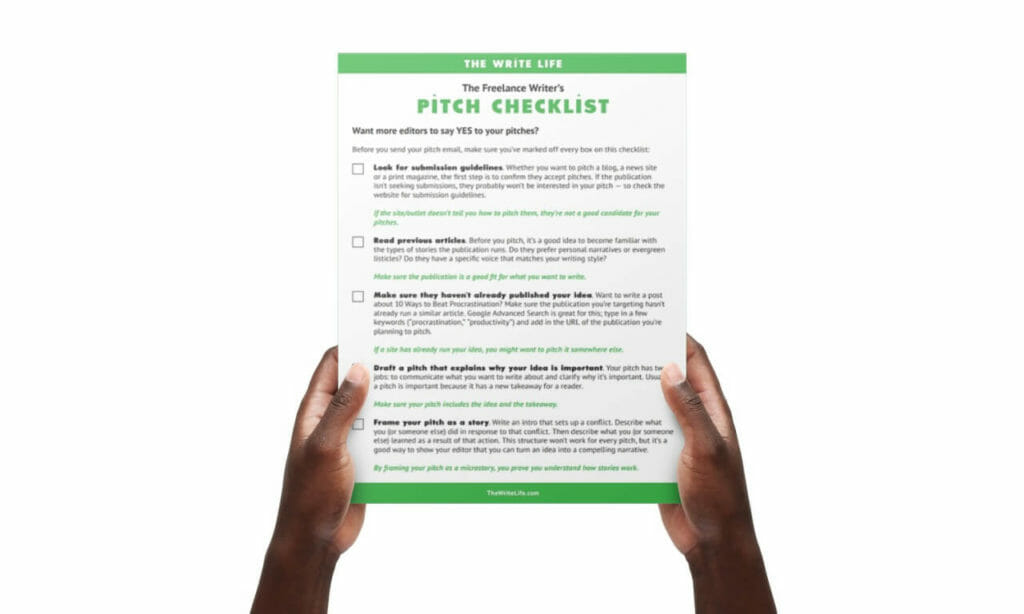Regardless of what type of writer you are, you are bound to come across times you will need to submit relevant writing sample examples. Whether you need a writing sample to include with a book proposal to a publisher, you are crafting a writing sample to apply for a job, or you are sending writing sample examples for a graduate school application, it is an art to be able to write the perfect piece when it counts.
So what distinguishes the great writing sample examples from mediocre ones that get passed over? And what are some easy-to-use tips specific to these different types of writing sample examples?
Writing Sample Examples Fundamentals: Do’s and Don’ts
DO…
- Do… read prompts thoroughly. While this is may seem obvious, many people glaze over the instructions and just start writing, potentially missing key elements of the prompt. Look for any information about the tone, the subject matter, and the word length.
- Do… write for your audience. The prompt you get may or may not be very detailed. Keep in mind you are not only writing to show your knowledge on a topic, but also to show you can write for the appropriate audience.
- Do…proofread thoroughly. Any typos or grammatical errors will only detract from your finished work. We highly recommend you use a grammar checker, like ProWritingAid or Grammarly.
DON’T…
- Don’t write too little or too much. If you are given a word count, there is a reason for that word count. A 1,200-1,500 word article will require more detail and organization than a 500-word article. Make sure you outline and prepare your article and research to fit the word count. The Article Outline Template can help with this.
- Don’t use an article you wrote for something else if you are asked to write an original piece. This is an example for you to show how your writing fits the qualifications.
- Don’t forget what your goal is. Keep your desired outcome front and center when you are crafting these writing sample examples. Your goal is to write a piece that fits the goal and delights the reader.

Writing Sample Examples: For Job Applications
When a potential employer is asking for writing sample examples, they are trying to gauge not only your style of writing, but also trying to pick up on key details about who you will be as an employee.
Potential employers are generally interested in your attention to detail, your ability to follow directions and meet deadlines, your willingness to go above and beyond, and also your understanding of the company and their audience.
Checklist for Writing Sample Examples for Job Applications:
- Read the instructions thoroughly. First, read for the basic idea of the prompt and then read a second time to take notes of everything you need to do to complete the prompt successfully.
- Research the company. Find their mission statement, their “about us” section, and understand not only what they do but also what their values are. Take a few minutes to read how they write on their blog, how they represent themselves on social media, and who they are on their website.
- Understand not only their brand but also look at who their audience is. Depending on what type of writing you are asked to do, make sure you take what you know about the company into consideration when you write and write for the appropriate audience.
- Proofread more than you normally would. That means not only proofread as you go, but read your writing sample examples several times both in your head and aloud so you can correct typos and catch any issues with phrasing or tone.
Writing Sample Examples: For Freelance Writing Gigs
Unlike the writing sample examples you’d write for job applications, the types of writing sample examples you include might be a bit different if you are trying to specifically land freelance writing gigs.
The editor might give you a prompt and ask you to write a piece for their audience to gauge how you will write for their site. The editor might also ask for recent examples of work you’ve published for other sites. Make sure you clearly understand what they are looking for and include any relevant information.
- For writing examples that have been published, include the link to the site.
- If you know any details of positive reactions to the article feel free to include that.
- Include writing examples that resonate with the same audience as the writing gig you are interested in. For example, if you are looking to write legal research pieces, include a similarly research-heavy piece you’ve written as opposed to a blog you wrote for a parenting website.
If you are crafting new writing examples for their blog as a trial article,
- make sure you clearly understand the blog and the assignment.
- Ask for any guides on their voice, tone, and other publication guidelines.
- Format your article for SEO as much as you are able. Remember to organize your subsections using H2 and H3, include your keywords in your headers and throughout the body, and space out your article to make it easier to read online.
- If you need more help with your SEO basics – check out our article SEO Writing Explained. There is also a course available from one of our partners at the SEO Content Institute. You can find more info by clicking the image below.

Writing Sample Examples: For a Book Proposal
When writing a book proposal to an agent or a book publisher, you do not usually send the manuscript in its entirety.
Instead, you will need to include in your proposal a lot of information. You will need to share a little about who you are as an author, who are your readers, a summary of the book, an outline of the book and also writing sample examples from the book itself.
Checklist for writing sample examples from your book for book proposals:
- Follow the submission guidelines for the agent or publisher. If you don’t have any submission guidelines, feel free to reach out and ask how they would like to receive your book proposal. For example, some agents and publishers have strong preferences over receiving submissions electronically versus in the mail.
- Include a self-addressed envelope if they ask for it and you are expecting to receive the proposal back. However, many publishers receive too many submissions to return proposals.
- Include at least two chapters of your book. If your chapters are short, consider adding a third. You should include enough of the book that the reader understands the flow of the book, gets a taste of the characters, and wants to read more.
- Proofread your chapters thoroughly. Even if your book has not reached the final stages of the editing process, you should not have any glaring grammar or punctuation errors. While you might still be refining the content, the chapters should be edited thoroughly. Don’t let anything detract from the chapters you submit.
- Generally don’t include the introduction, first chapter or final chapter. These chapters can feel too introductory or else too final. Instead, include chapters that are compelling, feature memorable scenes, and draw you immediately to the heart of the action.
For more help writing book proposals, check out these great resources:
- Related: How to Write an Effective Book Proposal
- Related: Book Proposal Academy Review
- Related: How to Write a Book Proposal in 7 Simple Steps
- Related: Book Proposal: a 19 Step Guide for Nonfiction Authors
Writing Sample Examples: For Graduate School Applications
Graduate school applications include a variety of information, some that you control and some that you can’t by the time you are applying. Even with less than stellar grades, you can still win over a potential school by including stellar writing sample examples.
So what is important to include in these applications?
Checklist for Writing Sample Examples for graduate school applications:
- Follow the writing prompts. This seems too simple of a direction, but truly one of the keys to writing well is to read the details and write to the prompt. Stay within the guidelines you are given for word length and formatting.
- Remember your audience. Writing for a college application is different than blog or website copy. If you are not currently in school and writing in an academic style, spend time reading other successful writing sample examples to get in that mode.
- Choose a topic that gets you excited. Universities are looking for not only people that are an asset to the university academically but also someone that enriches the student body. Feel free to let yourself shine and include your passions, your goals, and anything else that adds to who you are and will be as a student.
- Proofread. At this point, proofreading should be second nature, but don’t get caught up in the details of the application and forget to proofread. Have a trusted friend or advisor read your writing sample examples for a second opinion.
That’s a Wrap
Remember that with careful attention to detail, research and proofreading, you can create writing sample examples that help open doors and get you to where you want to go in life.








